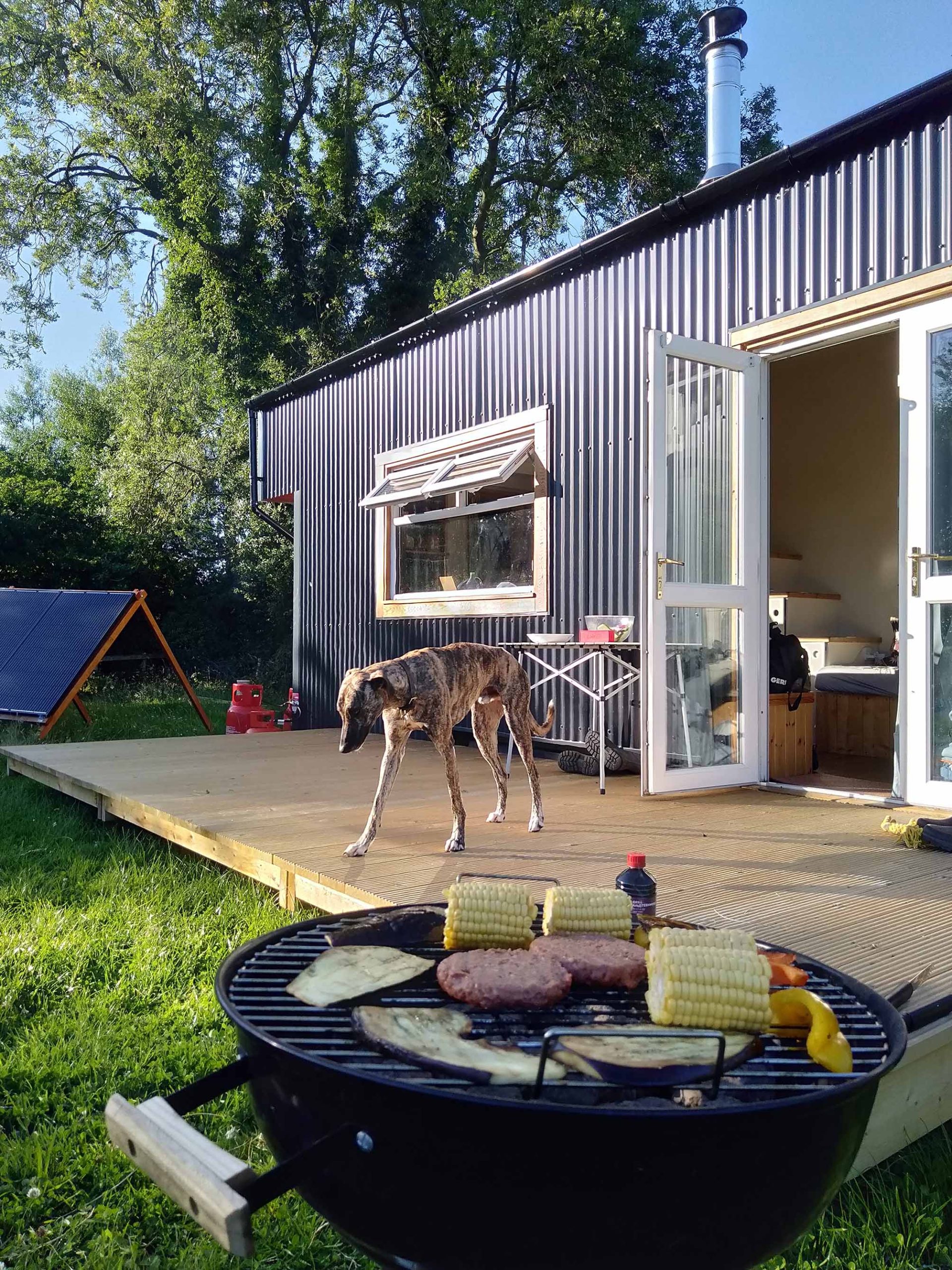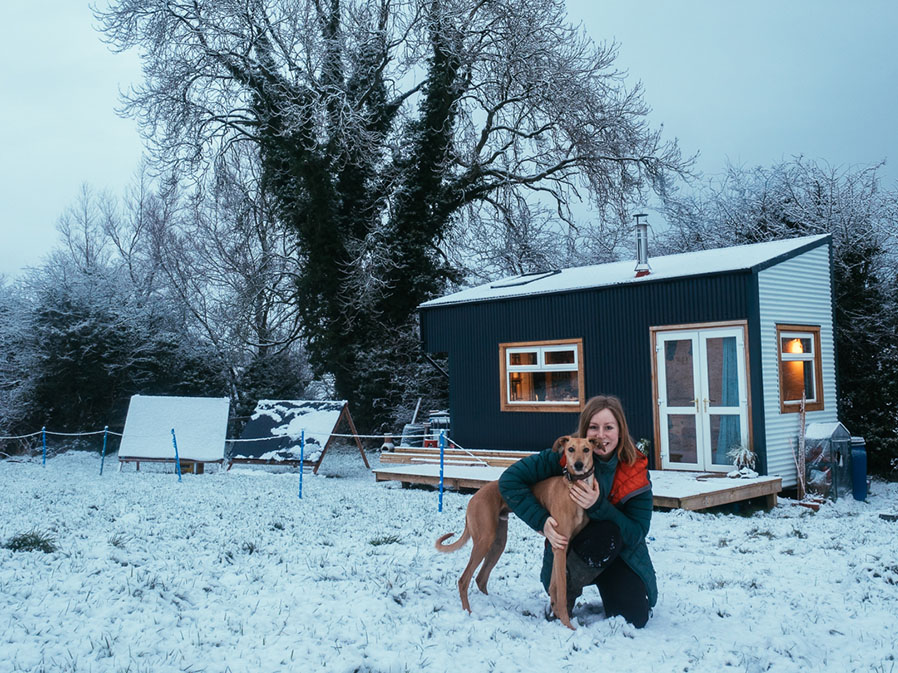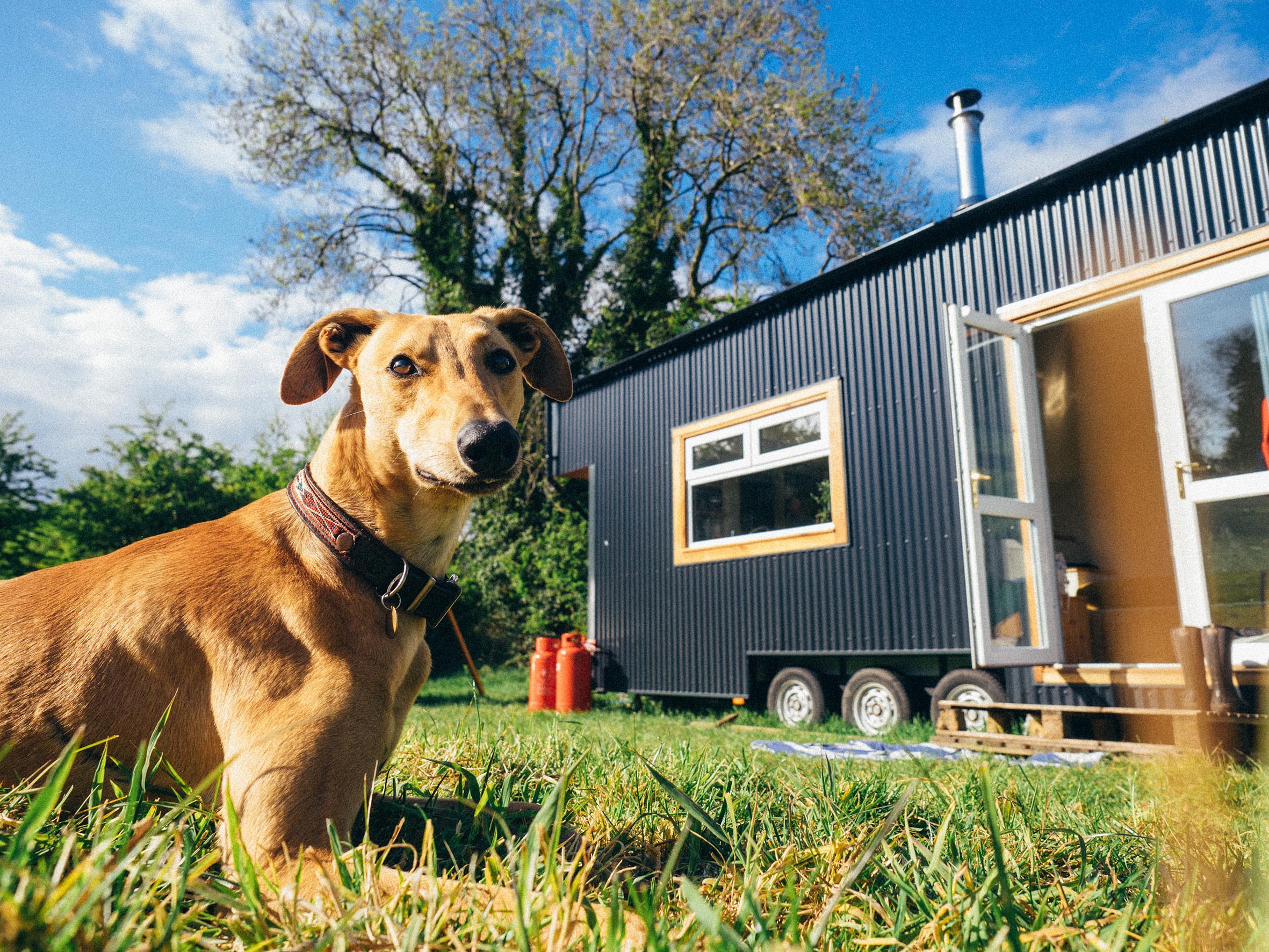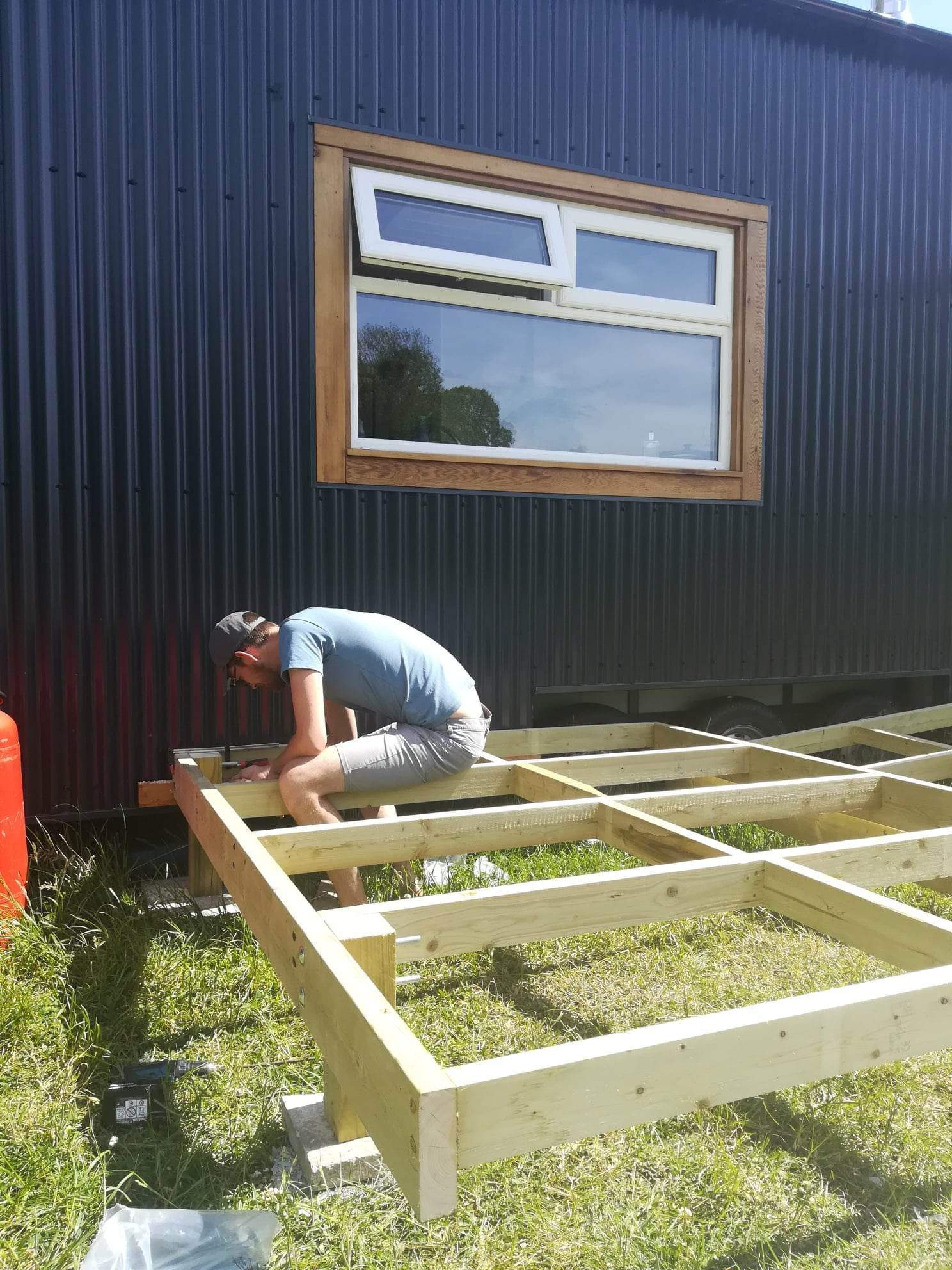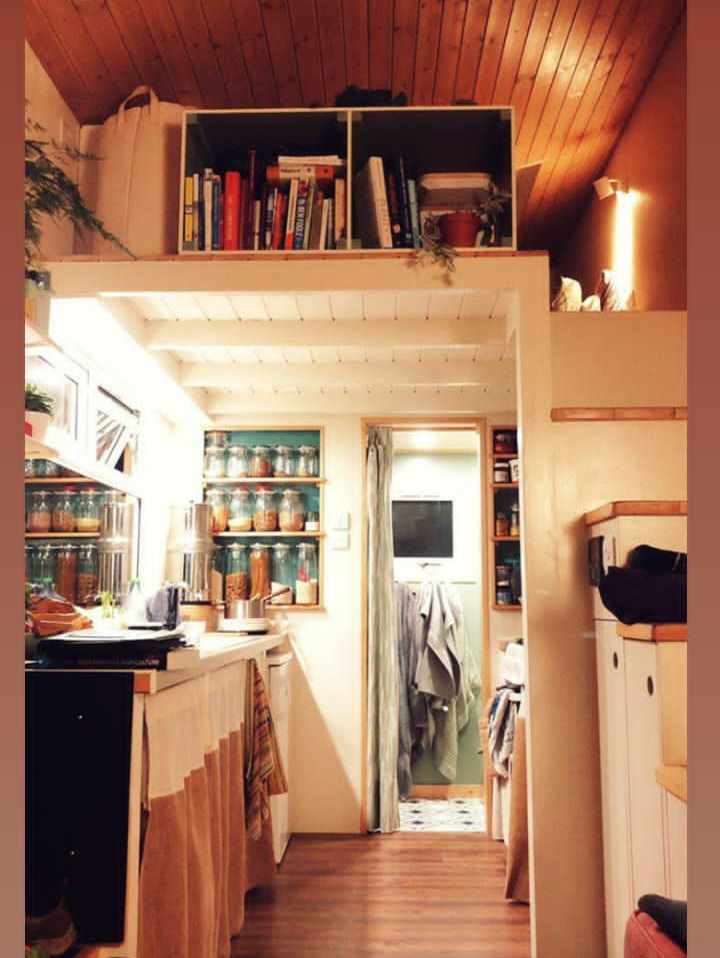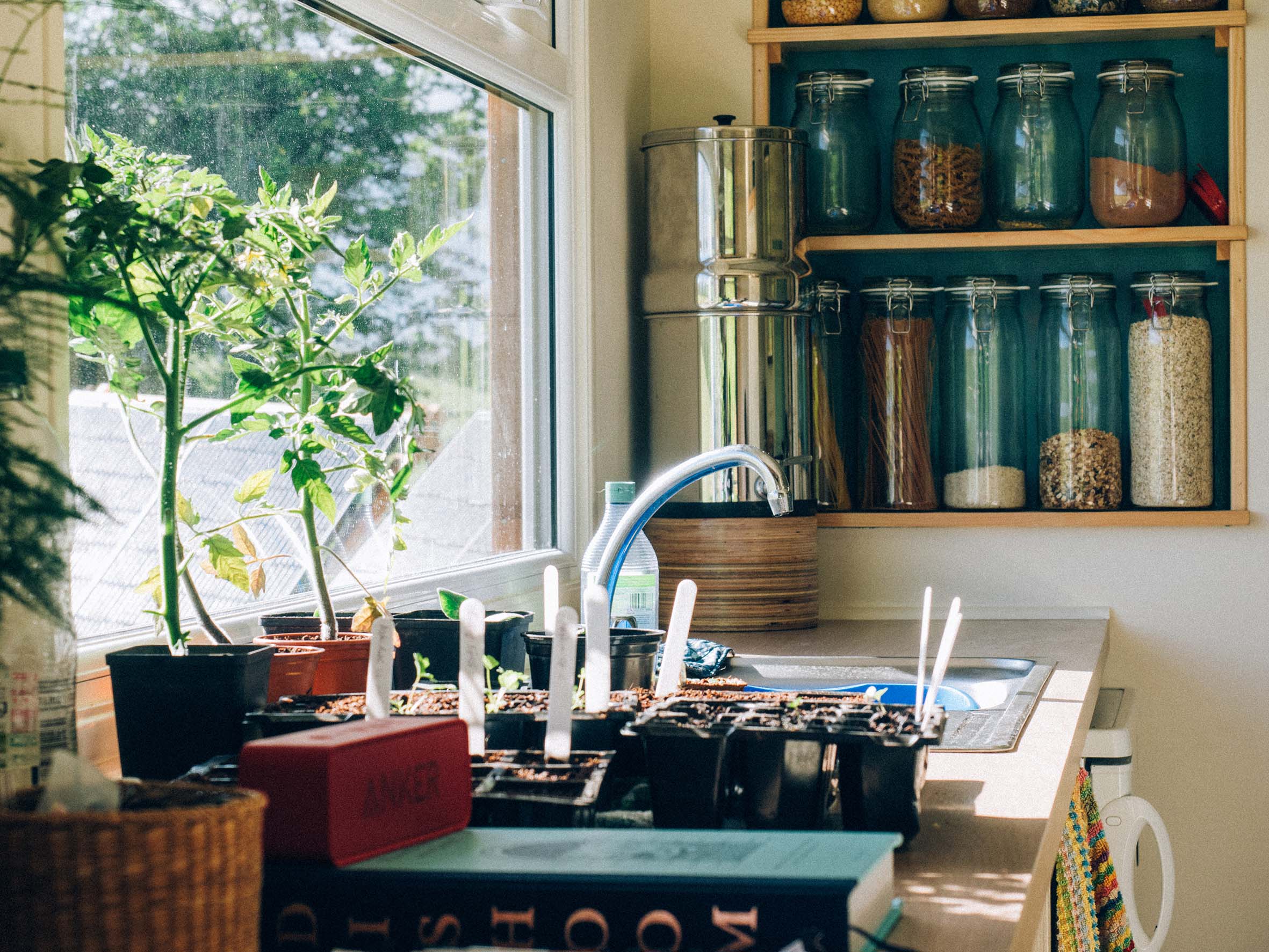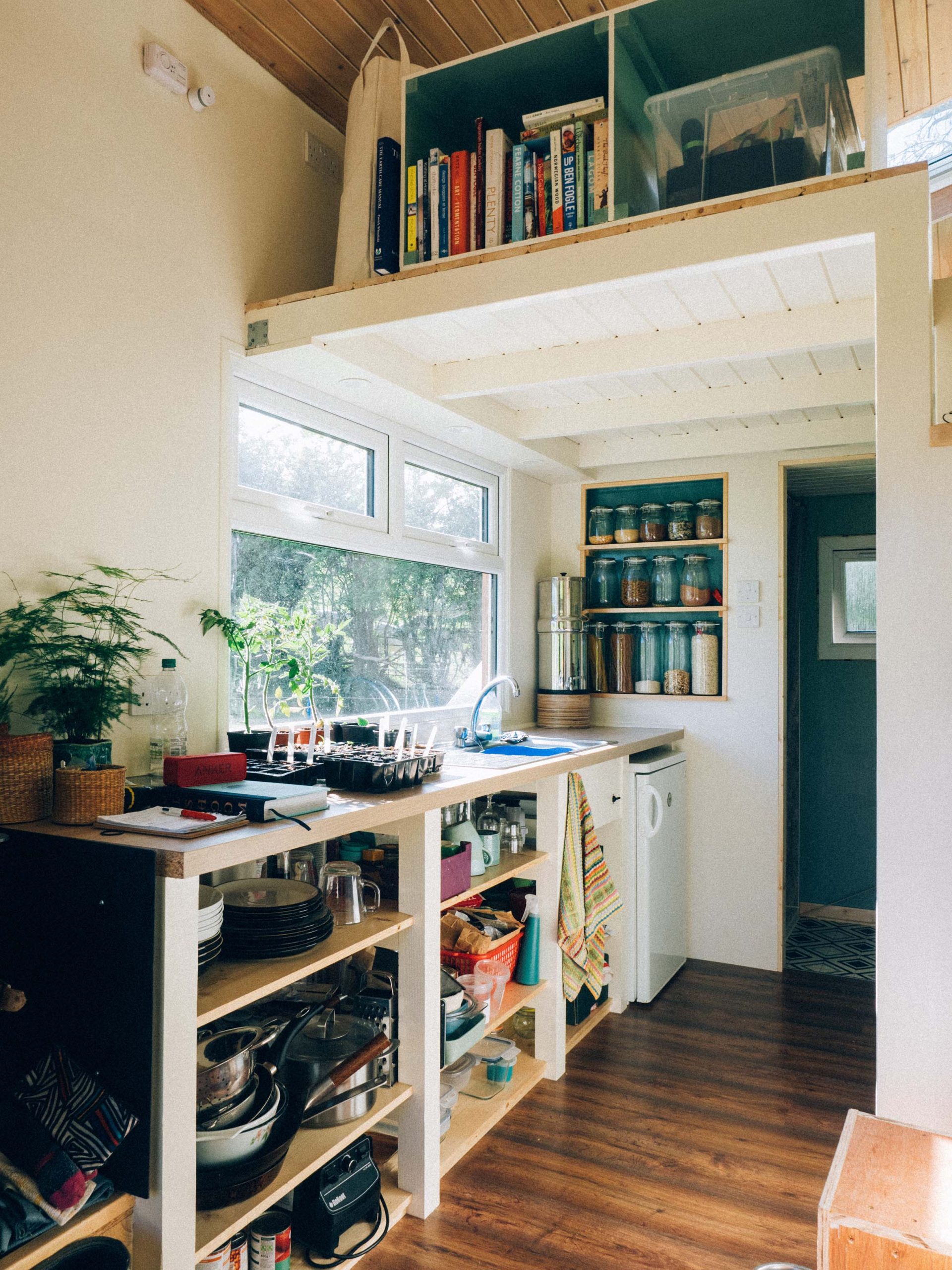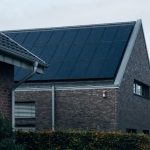Three years after moving into their tiny home, Michael Rauch and Alex Connolly share what tiny home living is like.
In this article we cover:
- Pros and cons of tiny home living
- How the house has worked out for them
- What their long term plans are
- What they would do differently
- Link to their story building their tiny home
How is the house working out for you?
The house is working so well for us and our needs. We have lived in it now for three years and we are still enjoying tiny house living.
Since we spoke last we have moved the house to a lovely new location (on the same property) and installed a deck so in the summer it doubles our living area. The move went pretty smoothly albeit quite stressful. It travelled a very short distance and across a field. We built out solar panels on collapsible stands making them easy to transport separately.
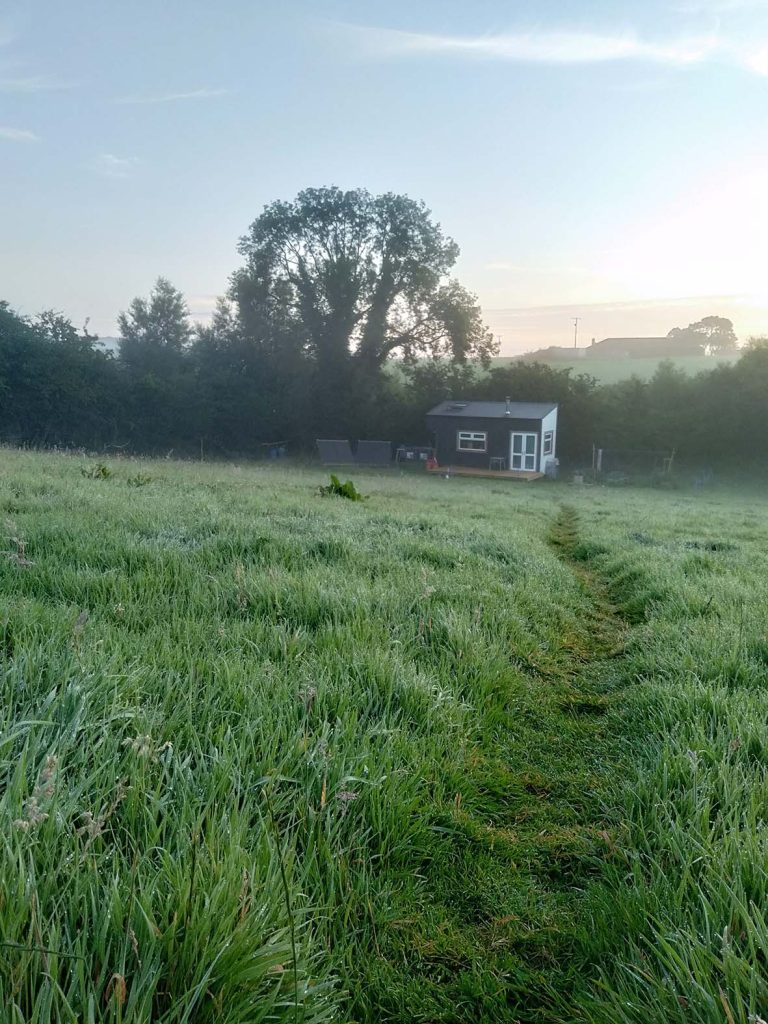
In the winter our little stove works well for us. It heats the space in no time at all and can almost get too warm in our mezzanine floor. Three to four logs has the house roasting. We have recently added a small heater with a control panel in the last for weeks. It means if we don’t have time to light the fire we can get quick heat and control it more easily.
[adrotate banner="57"]For the water supply for the house, we intended to harvest rainwater and had set up a multi stage filtration system and water storage system. However when we moved the house to the new location, it was the beginning of lockdown and it hadn’t rained for weeks. So we decided that it was more hassle than it was worth, and we didn’t want to start rationing showers in dry spells. So we ran a long mains water pipe to the new location.
What are your long term plans?
For us the tiny house isn’t a forever home, it’s a space that fits our current situation and lifestyle perfectly. If we plan to have kids in the future for example our context would change and the tiny house would no longer be suitable.
I think, however, we will always carry the teachings for living in a small self-sufficient space. It’s made me question whether I would ever want to rely on large energy companies in the future, and how much space we really need if and when we upsize.
There is a definite peace of mind and security being our own energy supplier, and it means you are directly in control of the spending.
We have dreams of building an off grid log house style home in the future, but never straying far from small living. We see so many badly designed large houses these days, and people always tell us they only ever use a few of the rooms and they cost so much to run. We reckon everyone could benefit from living in a tiny, purpose built space for part of their life.
PROS
Financial freedom. The low build cost of the house meant we were able to fund it as we went, so as soon as it was finished it was paid off. We essentially have no bills or ongoing expenses apart from a bottle of gas every month or two, and logs for winter. We’ve started up a small regenerative farming business, and this meant sacrificing a normal wage for a few years. This is something we could never have entertained if we were renting or paying off a mortgage. The build cost of the house has already paid for itself by now if you compare it to what we would have spent renting over this period.
Easy to run. We are very lucky that the costs of running our little house are pretty minimal. Our solar setup has worked really well for us. Although you do have to be conscious of the weather. For example on a slightly duller day we try not to run appliances with large demands, or we start up our small generator to top up the batteries. This is only a handful of days a year though.
Everything has a purpose. You can’t fill a small space with items that have no use. It’s important to keep it clutter free.
CONS
Ventilation. When we cook or shower we are always conscious of moisture build up due to it being such a small space. We tend to air out the house fairly regularly. One option would be to install a basic heat recovery ventilation system to always refresh the air while retaining heat.
Entertaining can be difficult. Our living area isn’t really set up to seat a larger group, but you can make it work. If this was a priority you could design in a bigger space for this. It’s not as much of an issue in the summer as we just have people over for a BBQ on the deck.
Read up on how Michael build his tiny house step by step, here.

